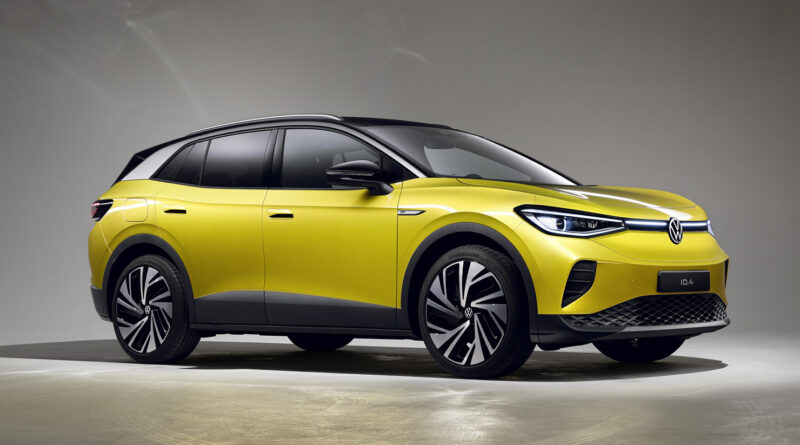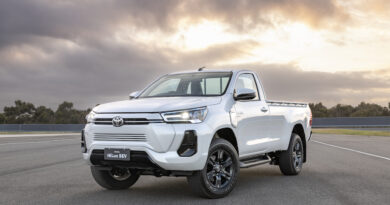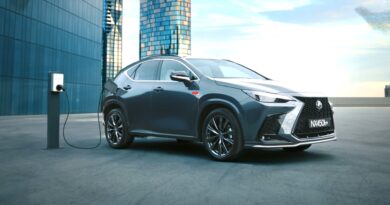ID.4 electric SUV most important VW ‘since the Beetle’
How big a deal is the new ID.4 electric car for Volkswagen? Massive…
“This is the most important launch for Volkswagen since the Beetle,” is the way Scott Keogh put it during the online world premiere of the battery-powered compact SUV overnight. He’s the head of VW Group of America.
While the USA will be an important market for the ID.4, the German giant fervently believes its new EV will have huge appeal all over the world. And Volkswagen, one of the world’s three biggest car makers, clearly plans to produce the ID.4 in massive numbers.
Want the latest EV news and reviews delivered to your inbox? Subscribe to our weekly newsletter!
The EV has already begun rolling out of VW’s EV-only factory in Zwickau, Germany. Another two factories in China will be making it before the end of the year. ID.4 production in the USA will begin in 2022, the same year a second factory in Germany comes on stream.

Volkswagen believes it will be building and selling around 500,000 ID.4s a year worldwide by 2025. Globally, the compact SUV segment is now the world’s largest. And in some markets, including the USA, it’s also the fastest growing.
In the USA, the ID.4 will arrive wearing a US$40,000 price tag. This exactly matches the least costly variant of the Tesla Model 3 line-up, the Standard Range Plus. The Model 3, remember, is currently the best-selling EV ever and a car that starts at around $79,000 drive-away in Australia.
But prices of the ID.4 will come down, according to Scott Keogh. The USA plant will build a version costing US$35,000, he says.

Initially, the ID.4 will be produced only with rear drive. The Volkswagen’s single 150kW motor will be good for 0-100km/h in 8.5 seconds and an electronically limited 160km/h top speed. Its 77kWh battery will deliver a driving range of 520km, according to the WLTP test standard. A DC fast charger rated at 125kW or more will take only 30 minutes or so to add 320km to the Volkswagen electric car’s driving range.
A more powerful and costly dual-motor version of the ID.4 will follow, as will cheaper versions with smaller battery packs and slower DC charging rates.
Eventually, the variety of powertrains offered in the Volkswagen electric SUV is likely to closely match those already announced for Skoda’s Enyaq iV EV. The Czech brand is part of the VW Group, which has developed an EV platform that can be used as the basis for a wide variety of models. It’s called MEB.

The premiere provided an opportunity for Volkswagen to boast about the ID.4’s spaciousness. The five-seat compact SUV will have a large 543-litre cargo compartment. Flipping the split rear seatback flat will enlarge it to 1575 litres.

In the USA 30 percent of compact SUV buyers are ready to go electric, VW says. The ID.4 will be highly competitive for performance, as well as space. Based on benchmark testing, it will deliver overtaking and standing start acceleration to beat mainstream SUVs like the Honda CR-V, Subaru Forester, Toyota RAV4 and Mazda CX-5.
There’s one disadvantage the ID.4 cannot overcome. It’s an SUV and, as with fuel-burning vehicles, there’s an efficiency penalty.
Special care was taken with the design of the ID.4’s exterior, and it is much more slippery through the air than, say, VW’s own Tiguan compact SUV. But the taller ID.4 can’t match the energy efficiency of a close and likewise MEB-based relative.

Compared to the Volkswagen ID.3, the brand’s hatchback EV, the ID.4 will use around 10 percent more electricity, according to European test standards.
But despite their poorer energy efficiency, all the world wants compact SUVs. Same can’t be said for hatchbacks.
And that’s exactly why it’s so important to VW that the ID.4 is a big hit.



